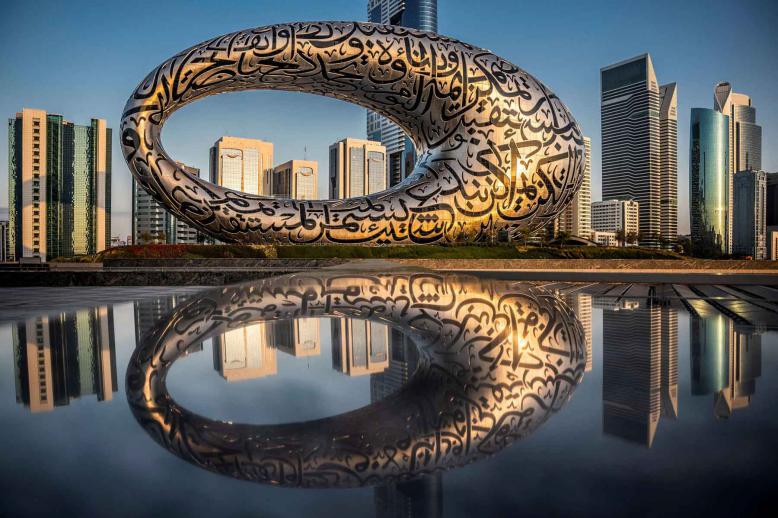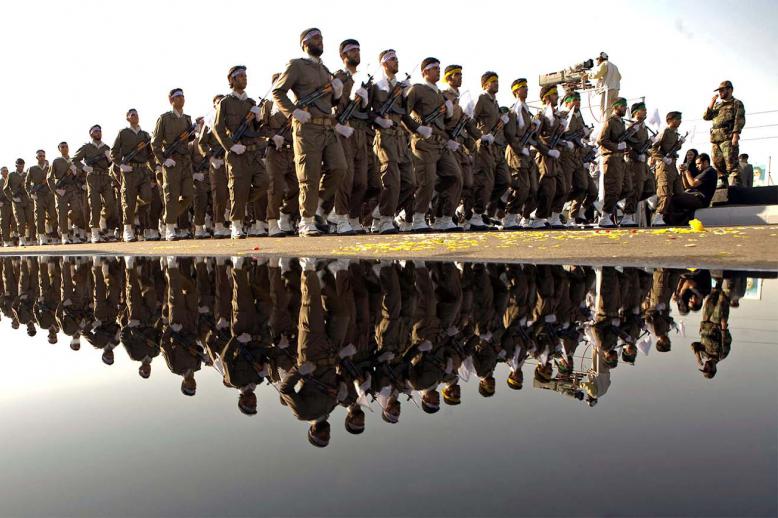Qatari ties to Iran, Turkey undermine regional security
Qatar made a surprise announcement December 3 that it would pull out of OPEC, a move seen as aimed at provoking Saudi Arabia, the organisation’s top exporter. A week later, Qatari Emir Sheikh Tamim bin Hamad al-Thani skipped the annual Gulf Cooperation Council summit in Riyadh, shunning an invitation from Saudi King Salman bin Abdulaziz Al Saud.
Not only did the Qatari moves underline simmering tension within the Arab Gulf region, they demonstrated Doha’s risk of breaking away from the Arab-Sunni orbit.
While the Qatari moves have been depicted as “symbolic” by Doha and as “insignificant” political manoeuvres by its embittered neighbours, they reflect Qatar’s shifting foreign policy that has been dubious and counterintuitive.
Boycotted by a quartet of Arab states — the United Arab Emirates, Bahrain, Saudi Arabia and Egypt — over its alleged support for terror groups, Doha has gradually slid into an unofficial yet open alliance with Iran, the arch-rival of Saudi Arabia, and Turkey, one of the few remaining havens for Islamist groups, notably the Muslim Brotherhood.
Iran, Turkey and Qatar quietly struck a deal in late November in Tehran to create a “joint working group to facilitate the transit of goods between the three countries.” While the agreement seemed like a modest effort to streamline trade flow to Qatar, which can no longer access air, land and sea routes to neighbouring Arab countries, it has proven to be a mechanism to further the agendas of Ankara and Tehran, which are at loggerheads with Saudi Arabia.
It showed that the Qatar-Iran entente, previously concealed, is out in the open. To put it simply: Qatar has irrevocably joined with Ankara and Tehran against its former Arab allies. It has conclusively positioned itself in a regional alliance that pursues geopolitical dominance by driving instability.
Relations between Iran and Turkey are more complicated. The two countries’ foreign policy agendas have sometimes collided, including in Syria, and they each aim to preserve the glory of their former empires.
While Tehran has tried to resurrect a Persian Shia empire through supporting proxies in Syria, Yemen, Lebanon, Iraq and elsewhere, Ankara has struggled to rediscover the glory of the Ottoman Empire by supporting the Muslim Brotherhood and other Islamist groups as they sow division in Arab countries and weaken their social fabric.
However, economic interests and a shared antipathy to Saudi Arabia and other Gulf countries, brought Iran and Turkey closer together. The two countries’ trade volume topped $8 billion over the May-October 2018 period and is expected to rise to $12 billion by March next year, Chairman of Iran-Turkey Chamber of Commerce Reza Kami said.
Beyond trade, Ankara and Tehran share key political objectives. Both countries, for example, view the Kurdish presence near their borders as a threat to their strategic interests and territorial integrity. They are engaged in fierce competition with Riyadh over primacy in the Arab Gulf and the wider Middle East, a battle that has played out in Syria, Iraq, Yemen, Lebanon and Africa.
Both states hope to continue playing their respective roles as key powers in the region and they regard their cooperation as a means to this end, at least in the short term.
What is in this power game for Qatar, which has no history of empires or prospects of world dominance? Some say that Doha’s rapprochement with Ankara and Tehran is an inevitable outcome of its rift with Arab neighbours. The truth, however, is that Qatar desperately strives to achieve the rank of regional power. It has pursued this unlikely objective since the turn of the century, especially following the events of the “Arab spring,” by funding devious media campaigns, pursuing carrot diplomacy, investing in global sports and ramping up its foreign aid.
Most troublingly, Qatar has invested billions of dollars in Islamist groups across the region, despite the chaos and instability they wrought following the Arab uprisings. This is an indication that Doha is betting on the re-emergence of the Muslim Brotherhood and its affiliates in Egypt, Tunisia, Syria and Libya.
By continuing this course, Qatar is playing with fire, not only because its foreign policy objectives are precarious but because it is antagonising its neighbours and driving the country into isolation.
Qatar faces another conundrum as it moves closer to Ankara and Tehran. Both of those capitals are at odds with the United States and could undermine Doha’s standing with Washington, which it has spent millions on lobbying over the past year ($16.3 million in 2017, a report by the Wall Street Journal stated).
Intentionally or unintentionally, Qatar is funnelling its resources into the hands of unreliable allies that could turn against it at any moment and pushing away its traditional allies, foolishly undermining the country’s national interest.
Or is it that Doha does not care about its national interest at all? That those in control are merely concerned with preserving the current power system, at the helm of which is the ruling branch of the al-Thani family?
Iman Zayat is the Managing Editor of The Arab Weekly.
This article was originally published in The Arab Weekly.







